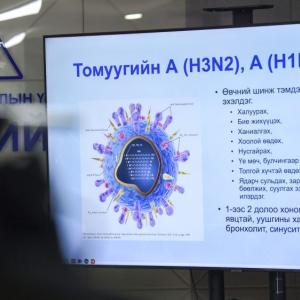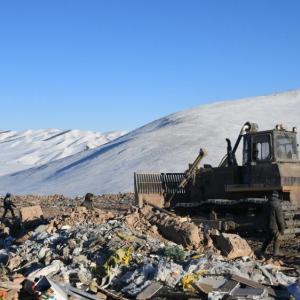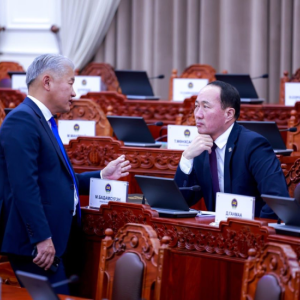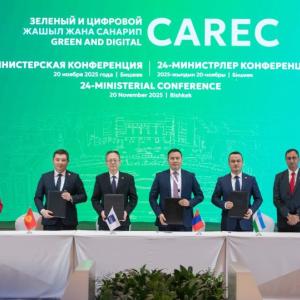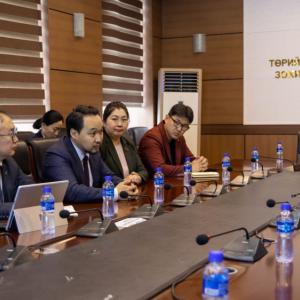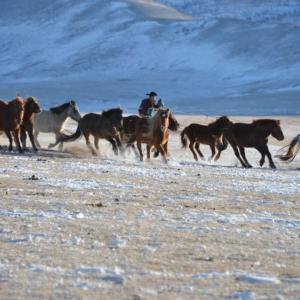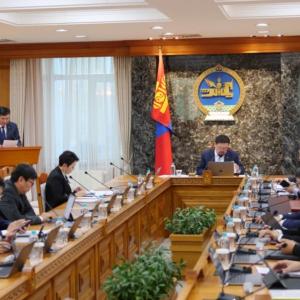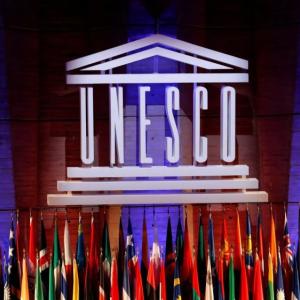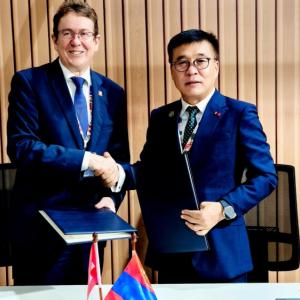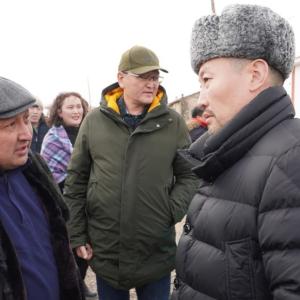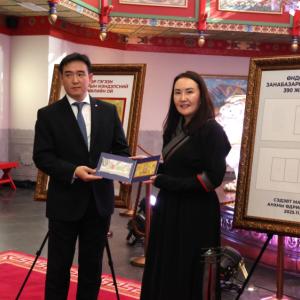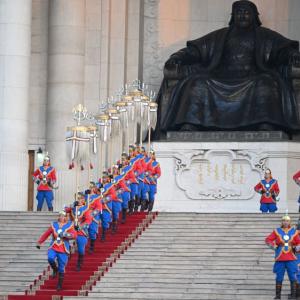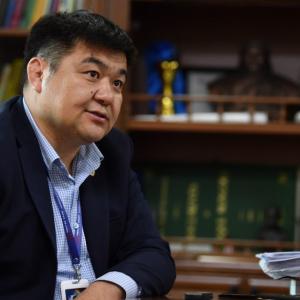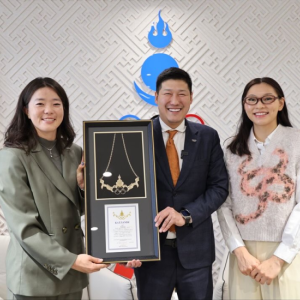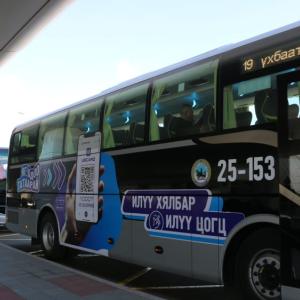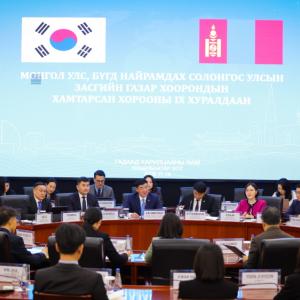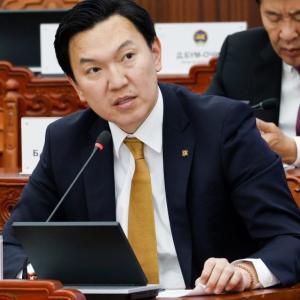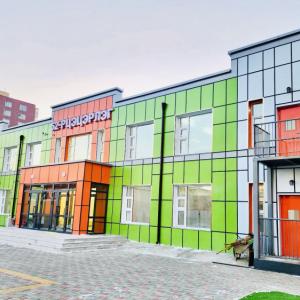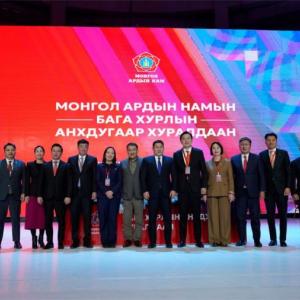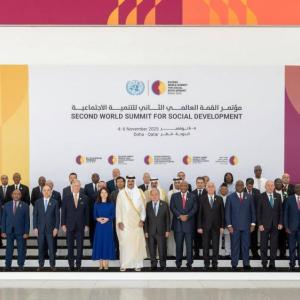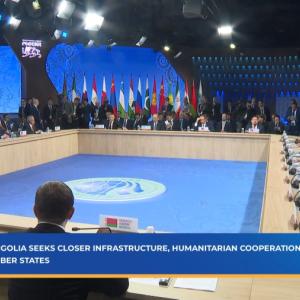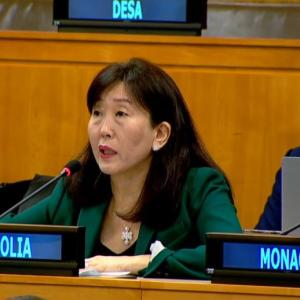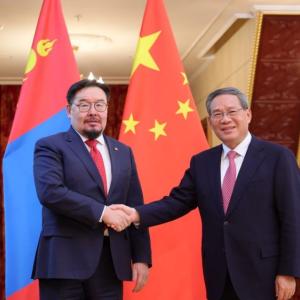Behind ADB’s Response to Mongolia’s COVID-19 Crisis
Economy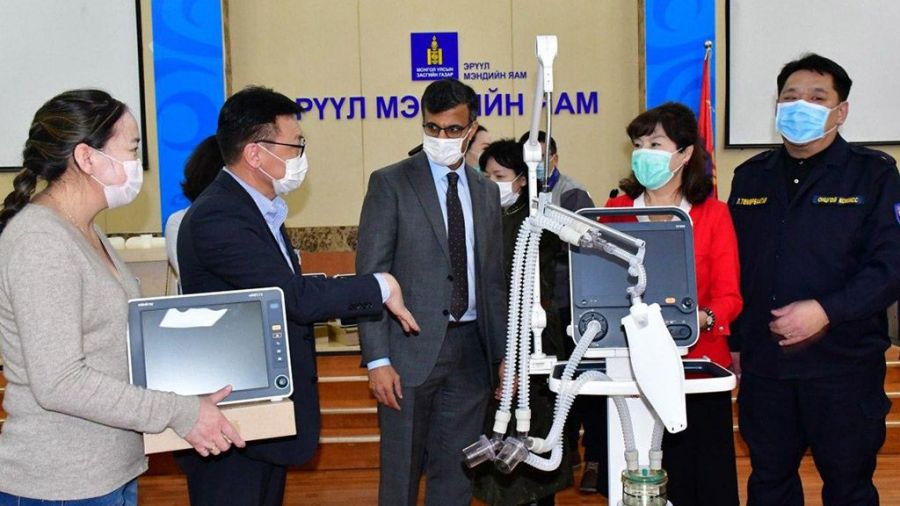
Ulaanbaatar/MONTSAME/. While Mongolia’s quick action averted a public health disaster over COVID-19, it has faced economic challenges, requiring quick assistance from ADB. When the early reports of the novel
coronavirus disease (COVID-19) were hitting the international headlines, the
Government of Mongolia was quick to act.
Strict border closures, a suspension of air passenger
travel, enforced quarantine for arriving passengers, and restrictions on daily
life kept the number of COVID-19 cases so low, there has been no recorded
transmission within the country and all known cases have been imported by
visitors or Mongolians returning from abroad.
While the government’s actions helped prevent COVID-19
exerting a high human cost in Mongolia, it still faced a huge economic cost.
The economy, with its dependence on mining, which accounts for almost a quarter
of gross domestic product and 90% of exports, remains vulnerable to swings in
commodity prices. Mongolia is also highly dependent on trade with its neighbor,
the People’s Republic of China, where the economic slowdown has triggered a
sharp fall in export prices in Mongolia and badly hit transport, tourism,
retail trade, and services. These combined to hit Mongolia with a 10.7%
contraction in GDP in the first quarter of 2020.
The government launched on 27 March 2020 a countercyclical
development expenditure program (CDEP) introducing $1.8 billion in measures to
counter the negative impacts of the COVID-19 pandemic. CDEP contains cash
transfer schemes and other social protection measures targeting poor and
vulnerable groups, households, and businesses. For this, the government turned
to the Asian Development Bank (ADB) for assistance.
ADB steps
in
ADB responded on 12 May with the approval of a $100 million Countercyclical Support Facility Loan, funded through the
COVID-19
pandemic response option (CPRO) under ADB’s Countercyclical Support Facility.
“We received the official request for assistance from
Mongolia on 17 April and delivered the package a little more than four weeks
later,” said ADB Country Director in Mongolia Pavit Ramachandran. “This is
something that would not have come together without the seamless coordination
from across our team and ADB.”
But internal discussion on a response package for Mongolia
started well before the ADB corporate COVID-19 package was approved.
“ADB took unprecedented steps to put in place resources,
policies, and business processes within a short span of time to respond to
COVID-19 in Mongolia,” said Director for Public Management, Financial Sector
and Regional Cooperation in the ADB East Asia Department Emma Fan.
Staff found that ADB’s close relationship with the
government helped speed things along. “The government was able to move its
machinery extremely quickly to get key information and to turn that around in
just a couple of days,” said ADB Senior Country Economist in Mongolia Declan
Magee. “That comes not from a year or two of engagement but from 30 years of
consistent partnership—that is such an asset for ADB in Mongolia.”
Under the Countercyclical support the CDEP has increased the
allocation under the Child Money Program. Private sector workers are exempt
from personal income tax for 6 months starting from 1 April, aimed at employees
at risk of losing their jobs. At least 45% of the beneficiaries are women.
Support has also been provided to micro, small, and medium-sized enterprises,
including those engaged in international trade, particularly the import of
critical food and medical supplies, to protect jobs.
“Integrating gender into a budget support operation of this
nature is a first and it does create a precedent,” said ADB Social Development
Specialist Veronica Mendizabal Joffre. “We were 100% clear on the importance of
this operation for women and Mongolian people in general and the strong
teamwork gave us a push to continue and deliver.”
Even with its stringent measures, the government estimates
that 20% of the population are still at risk from the public health threat
posed by COVID-19, particularly the poor and vulnerable. More than 10,500
Mongolians from overseas are waiting to return home from infected countries, potentially
bringing the disease with them. But testing capacity for COVID-19 was
inadequate and there is a lack of essential health care equipment and trained
medical personnel.
Among ADB’s first corporate responses on COVID-19 was to
reprogram $1.4
million of savings of the ongoing Fifth Health Sector Development
Project in Mongolia as early as 13 February. A $1
million grant was subsequently allocated on 25 March from the Asia
Pacific Disaster Response Fund. This assistance was used to hand over in
February and March 570 pieces of medical equipment for diagnosis and treatment
patients with respiratory conditions for 30 district and provincial general
hospitals and 4 tertiary level hospitals. The equipment included portable
digital X-rays, ventilators, patient monitors, oxygen concentrators, infusion and
injection pumps and nebulizers Personal protective equipment was also delivered
to 700 customs officers working at the borders.
A small-scale technical assistance of $225,000 on 2 March
2020 has been strengthening national capacity for emergency preparedness. Under
this, World Health Organization technical experts from Germany were deployed in
March to train national experts in infection prevention and control as well as
conduct training in provincial and district level hospitals.
On 7 May, ADB also approved $30
million in extra financing for the Fifth Health Sector Project to
further strengthen the country’s preparedness and response.
CPRO is providing further medical equipment and supplies,
complementing this with a set of medium-term measures. These include
strengthening 35 hospitals to meet national infection prevention and control
standards, and improving 210 hospitals to meet national standards to manage
severe respiratory infection patients, and enhancing testing capacity.
The assistance does not stop there. As part of ADB’s
COVID-19 response package, a $26.4 million Shock Responsive Social Protection
Project was approved on 19 June. The project will provide cash transfers to
households channeled through the Food Stamp and Child Money Programs in
Mongolia. ADB is also planning ahead to be ready to support a secondary
response later this year should this be requested by a new government that will
be formed after elections on 24 June in Mongolia.
Source: ADB
 Ulaanbaatar
Ulaanbaatar















